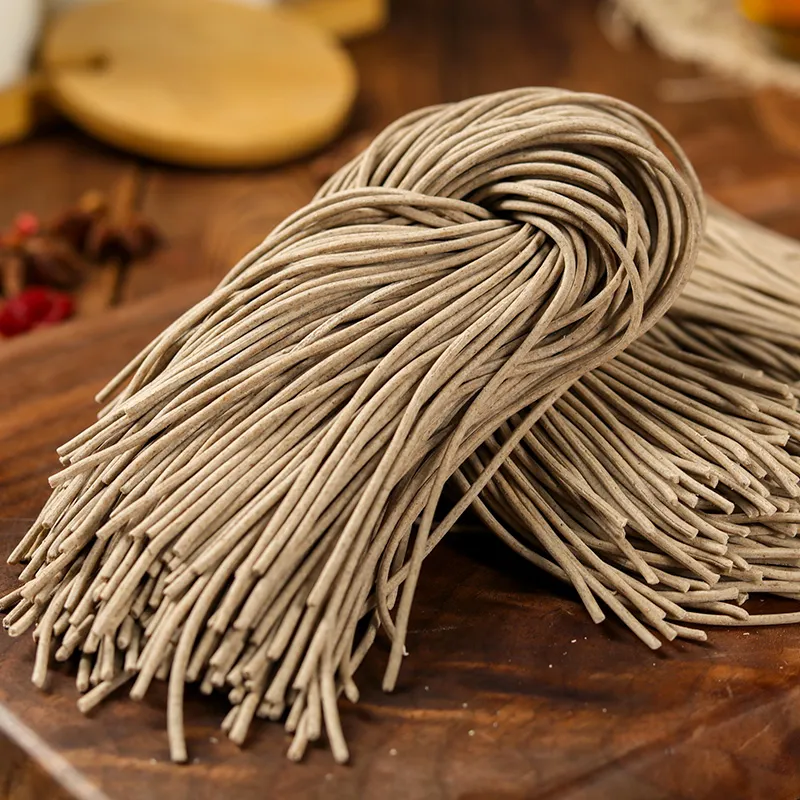what are soba noodles gluten free
Are Soba Noodles Gluten-Free?
Soba noodles have gained immense popularity worldwide, not only for their delightful taste and versatility in dishes but also for their perceived health benefits. Traditionally made from buckwheat flour, soba noodles are often touted as a gluten-free alternative to many wheat-based noodles. However, the question remains are all soba noodles gluten-free? This article will delve into the composition of soba noodles, their nutritional profiles, and how to make informed choices when incorporating them into a gluten-free diet.
Understanding Soba Noodles
Soba noodles originate from Japan and have been a staple in Japanese cuisine for centuries. They are typically made from buckwheat flour, which itself is gluten-free. In addition, buckwheat is rich in protein, fiber, and essential minerals, making it a nutritious option. However, the traditional preparation of soba noodles often includes wheat flour, which poses a significant concern for those adhering to gluten-free diets.
The Composition of Soba Noodles
While 100% buckwheat soba noodles are indeed gluten-free, many commercially available soba noodles contain a mix of buckwheat and wheat flour to improve the texture and binding properties. This combination may lead to discrepancies in the gluten content, making some brands unsuitable for individuals with gluten intolerance or celiac disease. Consequently, it's essential to read labels carefully and opt for products specifically labeled as gluten-free.
Choosing Gluten-Free Soba Noodles
As the demand for gluten-free products increases, several brands now offer soba noodles that are made entirely from buckwheat flour. When shopping, look for the following tips to ensure you select gluten-free soba noodles
1. Label Checking Always read ingredient lists when purchasing soba noodles. Look for products that explicitly state 100% buckwheat or gluten-free on the packaging.
what are soba noodles gluten free

2. Certification Seek out gluten-free certifications. Various organizations certify foods as gluten-free, providing an additional layer of assurance for those with strict dietary needs.
3. Culinary Usage Consider how you will use the soba noodles in your dishes. 100% buckwheat soba can have a different taste and texture than those made with wheat. Experimenting with various brands can help you find the one that suits your palate and culinary applications best.
4. Cooking Techniques Cooking gluten-free soba noodles requires specific methods. Since these noodles can be more delicate than those made from wheat, be mindful of boiling times and how you handle them to avoid breakage.
Nutritional Benefits
Even when consumed in gluten-free forms, soba noodles offer various health benefits. They are an excellent source of protein, containing all nine essential amino acids. Buckwheat is also high in rutin, a compound known for its antioxidant properties, which can help support cardiovascular health. Rich in fiber, soba noodles can aid in digestion and promote a sense of fullness, making them a great addition to a balanced diet.
Conclusion
Soba noodles can be a great gluten-free option if you choose the right kind. For those avoiding gluten due to dietary restrictions or health concerns, it’s crucial to be informed about the specific types of soba noodles available on the market. By opting for certified gluten-free or 100% buckwheat noodles, you can enjoy the delightful taste and nutrition that soba has to offer while adhering to a gluten-free lifestyle.
Incorporating soba noodles into your meals can provide diversity and flavor, whether you toss them in a stir-fry, serve them in a chilled salad, or enjoy them in a hearty broth. With careful selection and preparation, these versatile noodles can easily become a staple in your gluten-free kitchen. So go ahead and indulge in a warm bowl of soba, safe in the knowledge that you're making a delicious and health-conscious choice!
-
Unlock the Delicious Potential of Yam NoodlesNewsAug.11,2025
-
The Authentic Taste of Lanzhou NoodlesNewsAug.11,2025
-
Savor the Art of Hand Pulled NoodlesNewsAug.11,2025
-
Indulge in the Timeless Delight of Spaghetti BologneseNewsAug.11,2025
-
Indulge in the Rich Flavor of Braised Beef NoodlesNewsAug.11,2025
-
Elevate Your Meals with the Magic of Fresh PastaNewsAug.11,2025
-
Unleash Your Inner Chef with Delectable Italian Pasta CreationsNewsAug.01,2025
Browse qua the following product new the we

















































































































